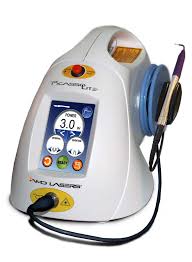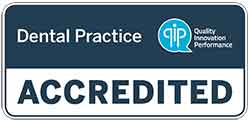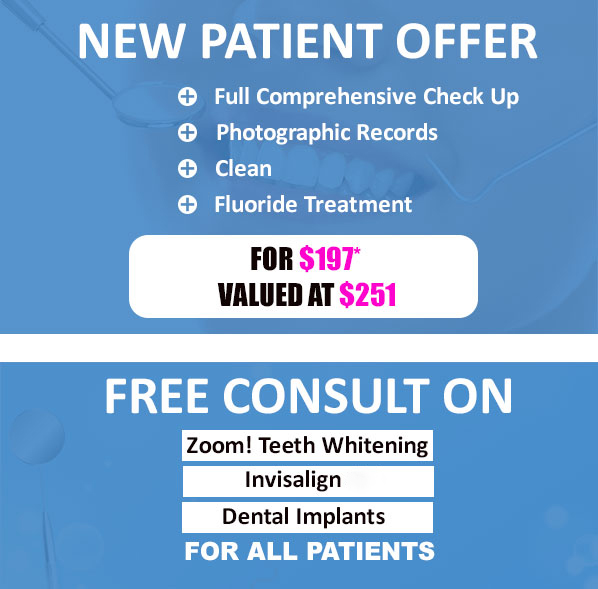Periodontal disease, also known as gum disease, is caused when bacteria in plaque (a sticky, colorless film that forms in the mouth) builds up between the gums and teeth. When the bacteria begin to grow, the gums surrounding the tooth can become inflamed.
If left untreated, this inflammation can cause the gums and supporting bone structure to deteriorate. This can lead to gum recession or even tooth loss. Unchecked periodontal disease can lead to early tooth loss as the support of the tooth that is the gum and the bone levels deteriorate.
The lost bone would also have an effect on the replacement of teeth in terms Implant and denture replacement as healthy bone levels decrease the treatment required and increase the chances of success for both the implant replacement and dentures.
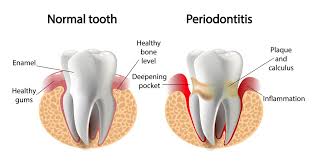
Gum disease around the Implant – Peri-implantitis
Similar to a natural tooth, bacteria can build up on the base of the implant, below the gum line. Over time, the bacteria irritate the gum tissue, causing it to become inflamed, damaging the tissue and if not caught early, causing the bone structure below the implant to deteriorate
Link of Gum diseases with other diseases
In addition, research has shown that gum disease may be associated with other diseases, such as diabetes, heart disease, respiratory diseases, cancer, prostrate health, impotence, pregnancy – preterm low birth weight babies. Hormonal changes occurring during puberty, pregnancy and menopause can lead to changes in gums. Gums may get easily inflamed and may have more tendency to bleed. Skin diseases, leukemia and HIV may lead to changes in gums. Examination of gums in such conditions may help in diagnosis.
Prevention of Gum diseases
Luckily, periodontal disease can be preventable. Adding these habits to your daily routine can help.
Brush your teeth. Brushing after meals helps remove food debris and plaque trapped between your teeth and gums. Don’t forget to include your tongue, bacteria loves to hide there.
Floss. Flossing at least once a day helps remove food particles and plaque between teeth and along the gum line that your toothbrush can’t quite reach.
Swish with mouthwash. Using a mouthwash can help reduce plaque and can remove remaining food particles that brushing and flossing missed.
Know your risk. Age, smoking, diet and genetics can all increase your risk for periodontal disease.
Periodontal/Gum Evaluation
“Gum disease is the most common cause of tooth loss, affects 1 in 5 adults in Australia and is one of the most undiagnosed diseases of the mouth”
During your check up at Tooth Zone the health of your gums would be assessed. If a further need of evaluation of gum health is advisable you would be advised for the same. That would consist of measuring the depth of pocket, that is the space between the gum and teeth and taking a detailed note of other findings. A Xray examination would be advised to see the bone levels.
Gum Treatment
“If diagnosed in time gum problems can be treated. The progress of gum disease can be halted and the lost gum and bone levels can be restored to some extent; increasing the life of the teeth, making the mouth and the body healthy as well”
Having special interest in gum treatments and having undertaken additional studies abroad Dr Narulas at ToothZone do advise and offer gum treatment to patients
Depending on the gum evaluation treatment for the gums may be advised which may be either or combination of the following
- Deep cleaning – For mild to moderate pocket that is curettage and deep clean
- Flap Surgery – For moderate to deep pockets with or without bone grafting.
Depending on the bone loss there is an option to place bone particles in an attempt to regenerate lost bone.
These options would be discussed during the treatment planning of gums.
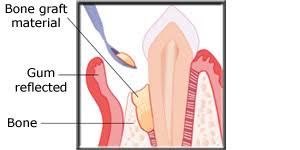
Additional Gum treatments available at Tooth Zone:
- Crown Lengthening – Using Laser the length of the clinical tooth can be increased for esthetic reasons and for increasing the support of tooth for capping.
- Gingivectomy/Gingivoplasty – Reshaping, recontouring of gums is carried out surgically and with lasers.
- Frenectomy – Frenum is the attachment of the lip with the attached part of the gum. In certain individuals and in some conditions the frenum may be attached in a way that would cause a pull on gum and also cause spacing in teeth. In such cases the frenum can be relieved.
- Vestibuloplasty – To increase the width of attached gum
- Depigmentation of gums
All the above mentioned gum treatments are available at Tooth Zone.
